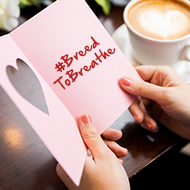
Greeting card retailers encouraged to stop using brachycephalic breeds in designs.
The British Veterinary Association (BVA) is asking the public to avoid brachycephalic breeds when choosing a Valentine's Day gift or card.
Using the slogan 'Hugs Not Pugs', the BVA is calling on greeting card retailers to stop using images of animals with potentially serious health and welfare problems as 'cute' designs.
BVA president Justine Shotton has written to the Greeting Card Association, along with many large retailers, asking them to pledge against using images of brachycephalic cat and dog breeds in their greeting card and gift designs.
Dr Shotton urged the public: “Flat-faced dogs and cats like Pugs, French bulldogs and Persians and ‘long and low’ breeds like dachshunds continue to remain popular on greeting cards and gifts this Valentine’s Day, even four years after vets started the #BreedToBreathe campaign.
“These animals add a ‘cute’ appeal to merchandise, but their looks mask a host of potential health and welfare problems.
“Valentine’s Day is a day for showing love, so giving a gift or card depicting an animal that can suffer because of how it has been bred is not the right message to give a loved one. That is why we’re asking everyone to choose hugs not pugs to show your love this year."
Commenting on retailers' lack of real engagement with the campaign thus far, she added: “Some card retailers and associations engaged with us when we wrote to them back in 2018, but sadly, we have yet to see any real change.
“While stock for this year is already in the shops, we hope that card retailers will work with BVA to reduce the visibility and, hopefully, the popularity of these breeds in the future.”
Further information about the BVA's #BreedToBreathe campaign can be found here.



 The Veterinary Medicines Directorate (VMD) is inviting applications from veterinary students to attend a one-week extramural studies (EMS) placement in July 2026.
The Veterinary Medicines Directorate (VMD) is inviting applications from veterinary students to attend a one-week extramural studies (EMS) placement in July 2026.